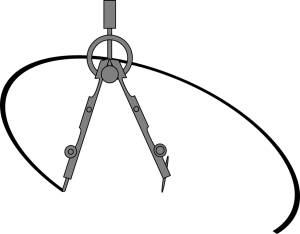Simplifying the Central Council Rules
Part 1 – Approach and Architecture
In late August, the Council formed a Rules Working Group to tackle the task of simplifying the rules of the Central Council, triggered by the Central Council Review (CRAG) proposals which were accepted at the last annual meeting in Edinburgh.
As Christopher O’Mahony has put it, “the clear mandate at Edinburgh was to reform and renew the Council’s governing structures so as to deliver better services that benefit ringers and ringing.”
Our brief, as defined by CRAG Proposal F, adopted in Edinburgh, is to “simplify the rules of the Council, replacing them with a short statutory set of rules supported by a set of operating principles and procedures. All of the necessary rule changes required by the foregoing proposals (A to E) will be incorporated into this work. The new rules …. should be compliant with Charity Commission guidance. ”
Reporting Progress
You can read about progress to date in a new Rules Work section of the Central Council website which will be updated as work continues.
The Proposed Rulebook
To ensure the new rulebook is not over-prescriptive on matters of detail, CRAG Proposal F requires us to create “a short statutory set of rules supported by a set of operating principles and procedures”, and we are therefore proposing that the revised rulebook takes the form of four documents:-
Ø A Rules document will contain the fundamental provisions necessary to sustain the Council, secure good governance and maintain compliance with Charity Commission and statutory regulation. To change the Rules will require a two-thirds majority at a Council meeting.
Ø A Procedures document, subordinate to the Rules, will contain additional bye-laws and procedures introduced by the Executive from time to time. These may also be amended at a Council meeting through a simple majority, in which case the wishes of the Council will prevail.
Ø A Policies document will contain published policies, standards and decisions on matters of good practice (for example on recruitment, diversity, safeguarding, and methods) published by the Executive.
Ø Transition documents will contain any special arrangements or Council Motions necessary to enable an orderly transfer from the existing rules to the new Rules and Procedures.
Our Objectives and High-level Decisions
Before starting on the detailed drafting work, we need to ensure that our work is being informed by sound principles and that we have got a few high-level decisions right.
We have therefore produced three short documents (a Terms of Reference, a Scope and Approach document and an Architectural Decisions document) which can be read or downloaded from the Central Council’s Rules Work pages.
We need to know your views on these high-level documents before we start drafting in earnest, to ensure that our work is guided by the right objectives.
How can you help?
It is important that we receive the widest possible feedback to ensure that we keep true to the brief we have been given, and that the new rulebook which emerges from this process is balanced, robust and acceptable to the vast majority.
At this stage, we would welcome your feedback on the three documents referred to above in one of two ways:-
1. For brief comments, a “Have Your Say” button is available on the Rules Work pages, allowing you to complete a quick survey and add comments.
2. For more comprehensive feedback, please email your comments to us at
To ensure we keep on track it would be helpful if any comments on these high-level documents are submitted by Friday 6th October. Your feedback will guide our work on the first draft of the new rule book, which will be published in late October for consultation.
Our plan includes two much longer periods of consultation on successive drafts of the new rulebook in October/November and December/January respectively. This is where we will get important feedback on the detail.
We are realistic enough to accept that this is a technical area where it will be impossible to please everyone on every point of detail, but we hope that this iterative process will ensure that no views are ignored and that the resulting rulebook will be broadly acceptable to all.
Clyde Whittaker
Co-ordinator, Rules Working Group

